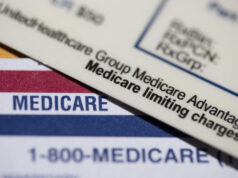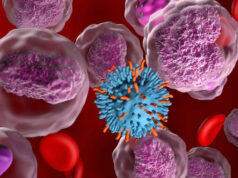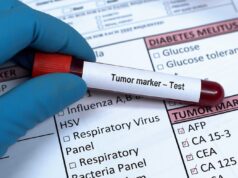 Every year, over 133,000 Americans die due to stroke. Those that don’t die are often left with serious disabilities. Experts from the Jaffe Stroke Center at Maimonides Medical Center stress the importance of prevention and want everyone to know the early warning signs.
Every year, over 133,000 Americans die due to stroke. Those that don’t die are often left with serious disabilities. Experts from the Jaffe Stroke Center at Maimonides Medical Center stress the importance of prevention and want everyone to know the early warning signs.
“Every second counts in the race to identify and treat stroke,” said Dr. Steven Rudolph, Director of the Center. “The sooner we can make a diagnosis and start treatment, the more we improve our chances of minimizing damage to the brain. Stroke can happen to anyone at any time. All of us should take a few minutes to learn the warning signs of stroke, so if we suspect someone may be experiencing this medical emergency, we can help by calling 911 right away.”
Stroke occurs when a blood vessel that carries oxygen and nutrients to the brain is either blocked or bursts. A blocked vessel prevents necessary blood and oxygen from reaching the brain. A burst blood vessel causes blood to accumulate and compress brain tissue. In both instances, the affected part of the brain starts to die.
Every second counts when dealing with this medical situation. The American Stroke Association lists the most common symptoms of stroke as: sudden weakness in the face, arm or leg—especially on one side of the body; sudden confusion, difficulty speaking or understanding; sudden dizziness, trouble walking, loss of balance or coordination; and/or a sudden severe headache with no apparent cause. The National Stroke Association suggest that you remember the acronym FAST, for Face, Arms, Speech and Time. If you suspect a stroke is occurring, ask your loved one to smile, raise both arms, and repeat a simple sentence. If one side of the face droops, one arm drifts downward, the words are slurred or the sentence is not repeated correctly, call 911 immediately.
While some of the risk factors for stroke are hereditary, others are not. This means that everyone can reduce their risk of stroke by living a healthier, more active lifestyle. It’s important to have your blood pressure checked regularly and eat a varied and balanced diet that relies heavily on vegetables, whole grains, fish, lean meats and fruit. Keep your weight under control. Monitor your cholesterol: you should try to lower the LDL and increase the HDL.
Get moderate exercise on a regular basis, at least two and a half hours per week. Avoid excessive alcohol consumption and don’t smoke.
Consult your doctor if you have a family history of stroke or high blood pressure to determine if you need additional assistance in prevention efforts.
“It’s critical that all of us pay attention to our risk factors and do everything we can to eat right, exercise, and take other measures that will reduce our chances of suffering a stroke,” added Rudolph. “Prevention is still our most effective weapon.”




